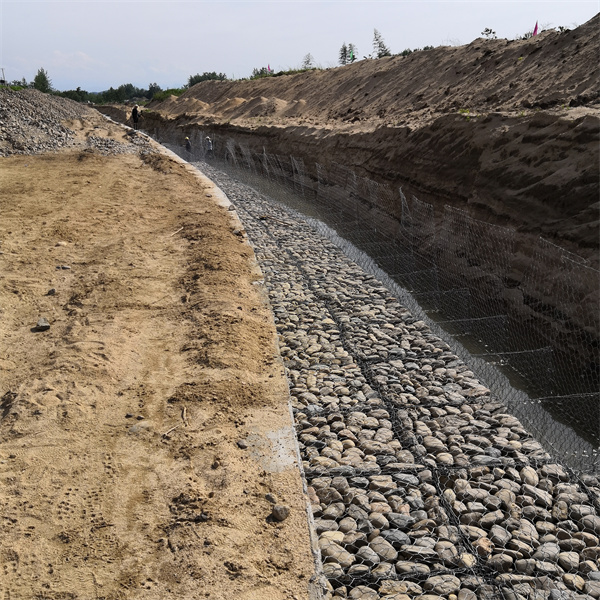កញ្ញា . 28, 2024 20:44 Back to list
Gabion Materials Manufacturing and Supply Solutions for Your Construction Needs
The Rise of Gabion Supplies Factories and Their Importance in Modern Construction
In recent years, the construction and landscaping industries have witnessed a significant shift towards innovative and sustainable materials. Among these materials, gabions have emerged as a popular choice for various applications, leading to the establishment and growth of specialized gabion supplies factories. These facilities play a crucial role in meeting the rising demand for quality gabion products while contributing to a more sustainable approach in construction and environmental management.
What are Gabions?
Gabions are wire mesh containers filled with rock, concrete, or other materials. Traditionally used for erosion control and retaining walls, their versatility has led to a myriad of applications including sound barriers, decorative landscape features, and even flood control. The name 'gabion' comes from the Italian word gabbione, meaning big cage, which aptly describes the structure of these mesh baskets designed to hold fill materials securely in place.
The Role of Gabion Supplies Factories
Gabion supplies factories are specialized production facilities that manufacture and distribute various types of gabion products. These factories are equipped with advanced technology and machinery, allowing them to produce high-quality wire mesh, filled gabion structures, and custom solutions that meet the specific needs of clients. By leveraging automation and skilled labor, these factories ensure consistency in product quality and reduce lead times in fulfilling orders.
One of the key advantages of gabion supplies factories is their ability to produce a range of products tailored to the specifications of construction projects. This includes different mesh sizes, materials, and fill options. For instance, while some projects may require heavy-duty steel mesh for increased durability, others might lean towards eco-friendly materials like natural stones or recycled concrete for a more sustainable solution.
Environmental Benefits
The environmental impact of gabions is a significant factor that has spurred their popularity. Unlike traditional retaining walls made from concrete, gabions allow for water permeability, which helps prevent erosion and promotes natural drainage. This characteristic makes them an excellent choice for environmentally sensitive areas where maintaining natural landscapes is critical.
gabion supplies factory

Moreover, the use of locally sourced fill materials reduces transportation emissions, while the longevity of gabion structures typically means less frequent replacements and repairs, further minimizing environmental footprints. Gabion supplies factories often focus on eco-friendly practices, such as utilizing recyclable materials and reducing waste during manufacturing processes.
Applications of Gabions
The applications of gabions are immense and varied, shaped by their adaptability and functionality. In civil engineering, they are widely used for road construction, slope stabilization, and flood control. The structures can be easily deployed in riverbanks to prevent erosion, acting as a protective barrier that blends seamlessly with the surrounding environment.
In landscaping, gabions provide aesthetic appeal while serving practical purposes. They can be transformed into seating areas, artistic installations, or garden walls. The ability to fill gabions with an assortment of stones or other materials allows designers to craft unique features tailored to the landscape’s theme.
In addition, gabions are increasingly being employed in the creation of noise reduction barriers along highways, proving effective in diminishing sound pollution while maintaining a natural look.
Conclusion
As the demand for sustainable construction practices continues to grow, gabion supplies factories are more important than ever. They not only provide essential materials for various construction needs but also promote environmental sustainability through their innovative products. The evolution of gabions from traditional erosion control solutions to multifaceted applications in landscaping and civil engineering highlights their significance in modern construction.
In a world increasingly focused on sustainability, the adaptability and environmental benefits of gabions make them a material for the future. Gabion supplies factories are at the forefront of this change, paving the way for a more sustainable built environment while providing practical and aesthetic solutions for a wide range of projects. With ongoing advancements in production techniques and materials, the future looks bright for gabions, ensuring their continued relevance in the construction industry.
-
Why PVC Coated Gabion Mattress Is the Best Solution for Long-Term Erosion Control
NewsMay.23,2025
-
Gabion Wire Mesh: The Reinforced Solution for Modern Construction and Landscape Design
NewsMay.23,2025
-
Gabion Wall: The Flexible, Seismic-Resistant Solution for Modern Landscaping and Construction
NewsMay.23,2025
-
Gabion Wall Solutions: The Durable, Decorative, and Affordable Choice for Every Landscape
NewsMay.23,2025
-
Gabion Basket: The Durable and Flexible Alternative to Traditional Retaining Walls
NewsMay.23,2025
-
Gabion Basket: The Proven Solution for Slope Stability and Flood Control
NewsMay.23,2025
-
Versatility of Chain Link Fence Gabion
NewsMay.13,2025






